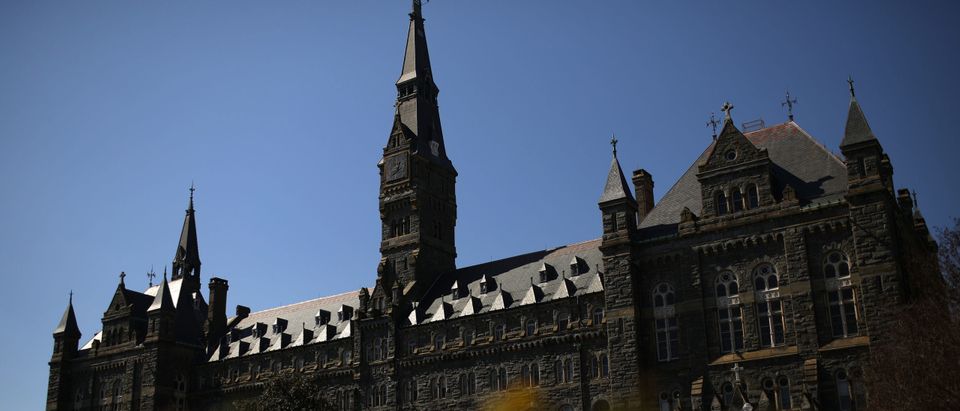First-year Georgetown Law students were taught that the concepts of property rights and “possession” were derived from slavery and racism, according to a lecture obtained by the Washington Free Beacon.
Professor Madhavi Sunder’s first-year law class included slides that claim property rights are part of “structural racism,” according to a report from the Washington Free Beacon. One slide claims that the history of American property law is rooted in “the history of dispossession and appropriation.”
A separate slide dubbed property ownership as part of a “settler capitalist society” and another claimed modern property ownership is a relic of racism.
“Property ownership often justified on ground of possession,” the slide read. “Possession is a legal term of art for a settler capitalist society.”
“Property and structural racism: Modern property law must contend with its birth in Native dispossession and the enslavement of African Americans, both based on inscribing purported racial difference into law,” another slide read.
Lecture slides from professor Madhavi Sunder’s mandatory first-year course trace the “birth” of modern property law to “Native dispossession and the enslavement of African Americans.”
Another slide defines “possession” as “a legal term of art for a settler capitalist society.” pic.twitter.com/pshxiIO9qL
— Washington Free Beacon (@FreeBeacon) March 30, 2022
Another slide claimed that “intellectual property has a cultural appropriation problem,” particularly for black choreographers. The professor alleged that white TikTok influencers and the popular video game “Fortnite” culturally appropriate black choreographers, according to the Free Beacon’s report.
The professor also used so-called “anti-racist” author Ijeoma Oluo’s definition of cultural appropriation. It defines cultural appropriation as the “adoption or exploitation of another culture by a more dominant culture.” (RELATED: Iowa Public School Teachers Asked To Examine Culture, ‘Hierarchies’ In Math Class)
Inserting leftist narratives into law school classrooms is part of a motion adopted by Georgetown Law faculty in Sept. 2021. The motion called for an emphasis on “racial justice,” “critical race theory,” and “race, gender, indigeneity, and class” in curriculum.
“At Georgetown Law, we often lead rather than follow important trends in legal education,” the motion reads. “We believe we have an opportunity to do so when it comes to race and racial justice in the curriculum.”
Georgetown Law School did not immediately respond to the Daily Caller’s request for comment.


